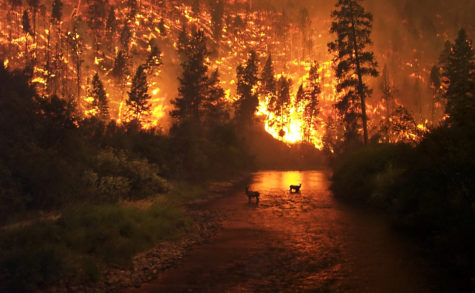 Last week I had a couple of snakebit days, the kind that are my fault entirely – like leaving (almost) the house with no makeup and no shoes. On one of these days I took a package to an UPS store, found out I would pay $50 to send a $50 present, decided what the hell I could go with it, and took out my little wallet with my credit cards to pay. Then the UPS guy said he’d mismeasured the package and I’d have to pay $90. And I thought long and hard before I realized how dumb I was to even think about it at all. So I said thank you anyway but no, and picked up my package and left. And didn’t realize I’d left my wallet there until the next day.
Last week I had a couple of snakebit days, the kind that are my fault entirely – like leaving (almost) the house with no makeup and no shoes. On one of these days I took a package to an UPS store, found out I would pay $50 to send a $50 present, decided what the hell I could go with it, and took out my little wallet with my credit cards to pay. Then the UPS guy said he’d mismeasured the package and I’d have to pay $90. And I thought long and hard before I realized how dumb I was to even think about it at all. So I said thank you anyway but no, and picked up my package and left. And didn’t realize I’d left my wallet there until the next day.
So I called the store and the guy said, “Yes, it’s here, I was trying to reach you but couldn’t.” I thought about that too: in that wallet were several credit cards, a bank card, all my insurance cards, my driver’s license, and therefore my credit card numbers with identifiers, birth date, social security number, hair color, weight, height — everything about me but a phone number. I.e., life in the modern age is weird. So I went back to the UPS store and identified myself by name and the same UPS guy as yesterday said, “Here you go,” and handed me the wallet with everything intact though in different order because he had to look through it. “Listen,” I said, “I can’t tell you how much I appreciate this. Thank you so much.” “You’re welcome,” he said. Then I had thought #3: this guy had done me an enormous favor, given me back my whole identity, and taken some time and effort to do it. So I said, “You’re such a good guy to have tried to reach me and to keep all these cards for me. Not everyone would have done that.”
“No problem,” he said. “I just thought, ‘what would I want somebody to do for my grandmother?’ and that’s what I did.” Thought #4: his grandmother? His GRANDMOTHER? Oh really come on now. I don’t look like anybody’s grandmother. Do I look like a grandmother? Do I look like one of those old ladies who, back in my youth, I would have pitied for their lost bounce and beauty? Am I an old lady?
Thought #5: I maybe should stop thinking about myself for a little minute and look at the UPS guy and by golly, he’s of an age where I could indeed have been his grandmother. So I say, “Well, thank you again,” and he says again, “It’s how I’d want someone to treat my grandmother.” I remember that some of my best friends are grandmothers. Continue reading

 When I was four or five years old, my parents took me on the Bluenose ferry, which traveled a narrow stretch of the Atlantic between Maine and Nova Scotia. I was enthralled at first, taking in the warm sun, the brisk wind, the sparkle on each wave as it rose. But that lasted only until my dad and I descended to the dark lower deck where passengers parked their cars. I couldn’t see the sky anymore, and my brain clunked into panic mode as the floor heaved and rolled beneath me. I felt as if my stomach contents might eject any second.
When I was four or five years old, my parents took me on the Bluenose ferry, which traveled a narrow stretch of the Atlantic between Maine and Nova Scotia. I was enthralled at first, taking in the warm sun, the brisk wind, the sparkle on each wave as it rose. But that lasted only until my dad and I descended to the dark lower deck where passengers parked their cars. I couldn’t see the sky anymore, and my brain clunked into panic mode as the floor heaved and rolled beneath me. I felt as if my stomach contents might eject any second.  October 2-6, 2017
October 2-6, 2017 I was walking up the street the other day when a woman cruised by me on a motorcycle, slowed down and pulled over. Some quick calculations went through my mind: she’s wearing yoga pants because she’s a Pilates teacher, I only have one girlfriend in town who rides a motorcycle regularly, she’s about the right height, those are the kind of shoes she would wear, she’s stopping to talk to me.
I was walking up the street the other day when a woman cruised by me on a motorcycle, slowed down and pulled over. Some quick calculations went through my mind: she’s wearing yoga pants because she’s a Pilates teacher, I only have one girlfriend in town who rides a motorcycle regularly, she’s about the right height, those are the kind of shoes she would wear, she’s stopping to talk to me.


